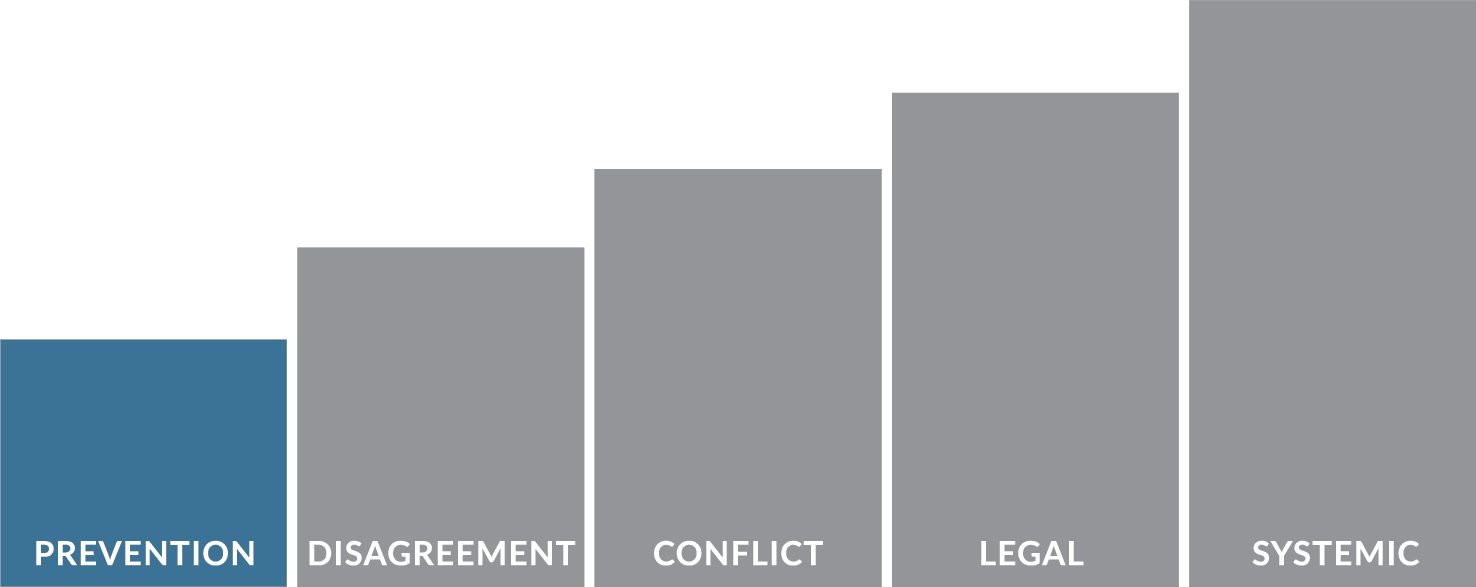SPECIAL EDUCATION CONFLICT RESOLUTION
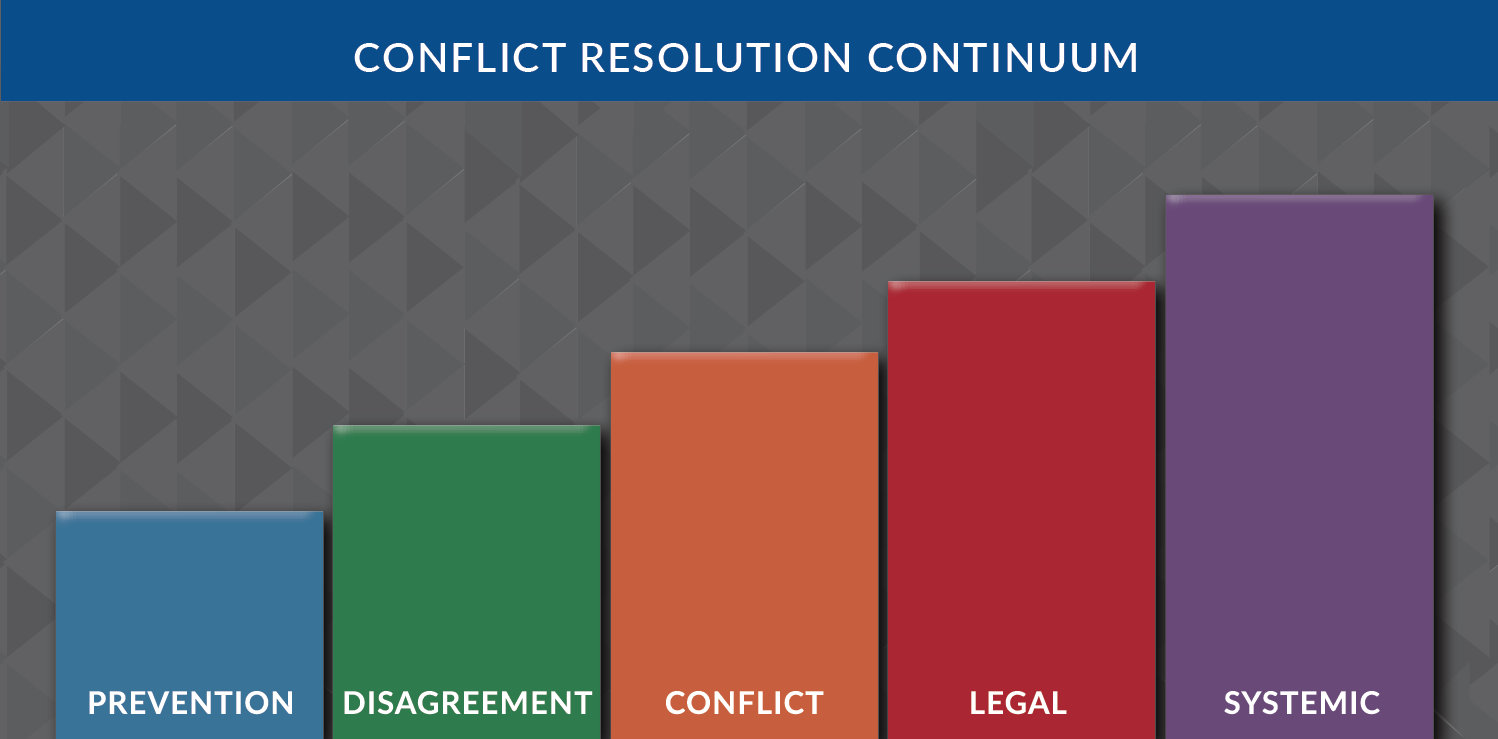
Special education conflict can involve a range of different people and organizations (parents, students, teachers, school administration and government agencies, etc.) and progresses through different stages (for example, from a personal disagreement to a formal legal hearing). Because every student and situation is unique, there is no ‘one size fits all’ fix for conflicts involving students with disabilities. DC special education stakeholders need a range of quality options to address conflict constructively, according to who is involved, what is at stake, and how the issues are evolving. Select any of the continuum stages below for more information or to find help with special education/disability-related issues:
Prevention
Parties communicate well and processes are clear, preventing conflict. Prevention strengthens the abilities of families and students to navigate the system and advocate for their rights.
Types of Interventions:
- Student-led IEPs
- Youth leadership networks
- Parent engagement
- Participant and stakeholder training
- Information sharing / outreach materials
DC Resources:
- Office of the Student Advocate
- Advocates for Justice and Education
- SchoolTalk
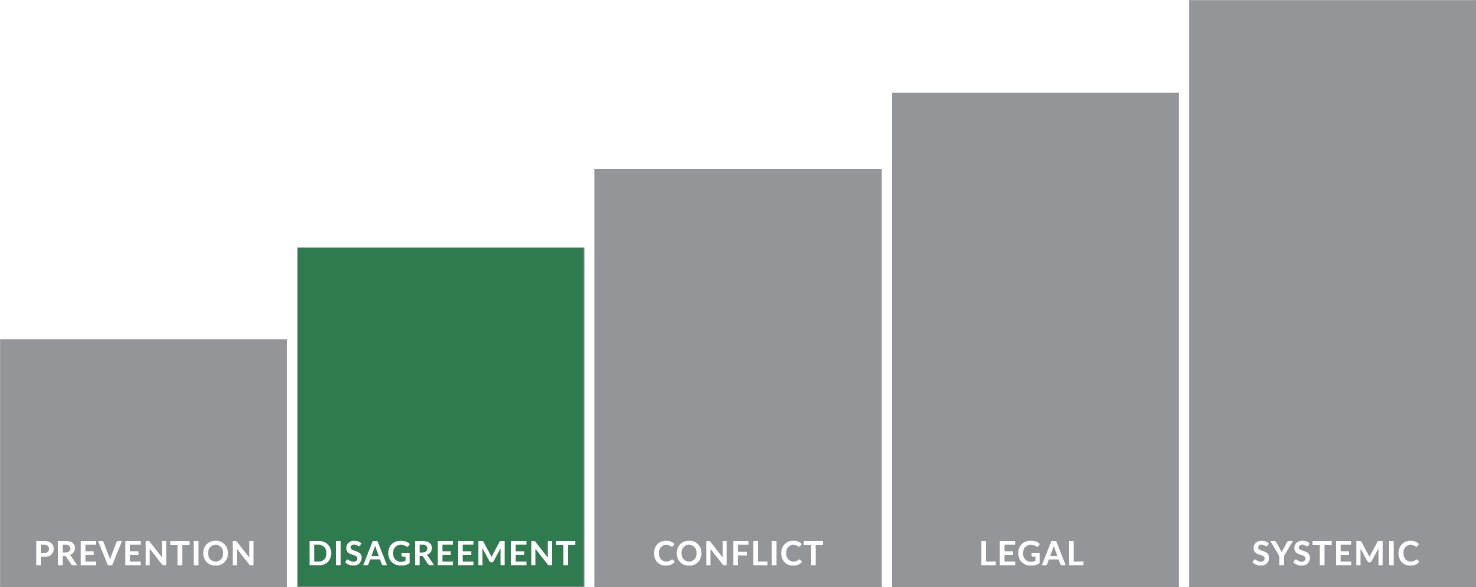
Disagreement
Parties disagree but a third party can often help resolve the issue. Depending on the issue, a third party can provide information and advice to students and families to help them address specific needs and concerns.
Types of Interventions:
- Case management
- Technical and legal information
- Case-specific coaching
DC Resources:
- Advocates for Justice and Education
- District of Columbia Public Schools, Early Dispute Resolution Team
- Office of the Student Advocate
- Ombudsman for Public Education
- QualityTrust
- SchoolTalk
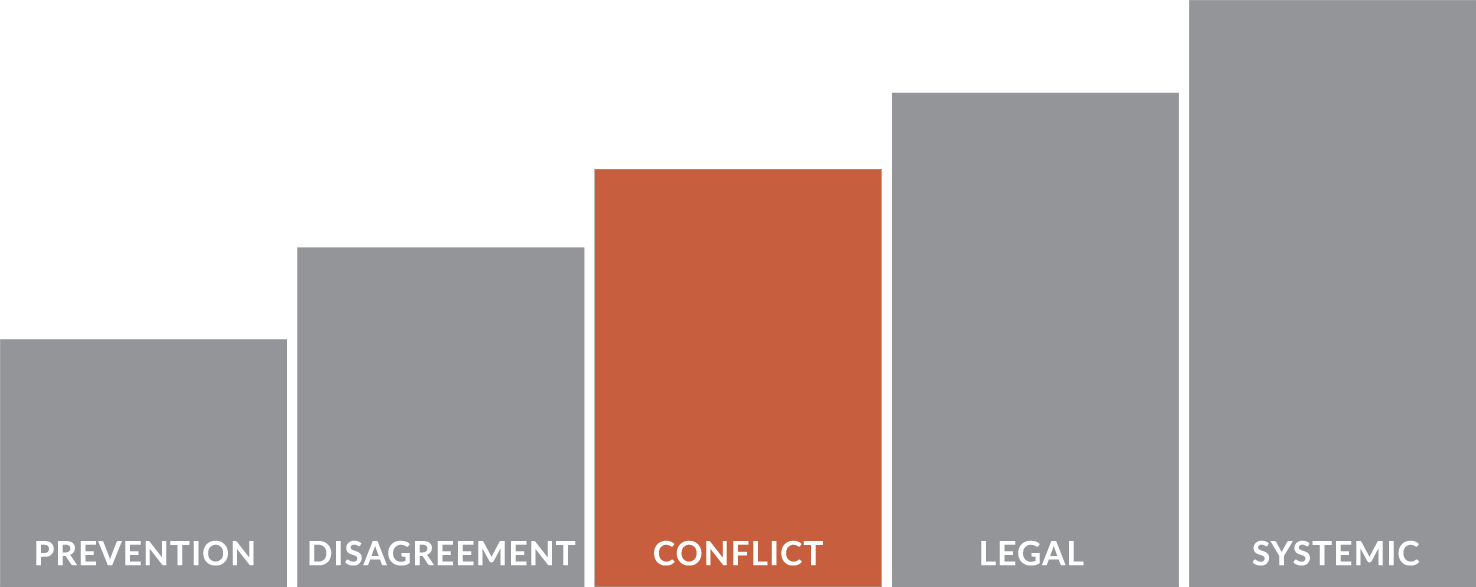
Conflict
Parties actively oppose and lack trust in one another, requiring a third party to intervene for a positive outcome. Third parties who are trained in formal conflict resolution processes can facilitate communication and problem-solving among involved parties when there is an active conflict.
Types of Interventions:
- IEP Facilitation
- Mediation models
- Ombudsperson
DC Resources:
- Advocates for Justice and Education
- Office of the Superintendent of Education, Office of Dispute Resolution
- District of Columbia Public Schools, Early Dispute Resolution Team
- Ombudsman for Public Education
- SchoolTalk (provides training and technical assistance)
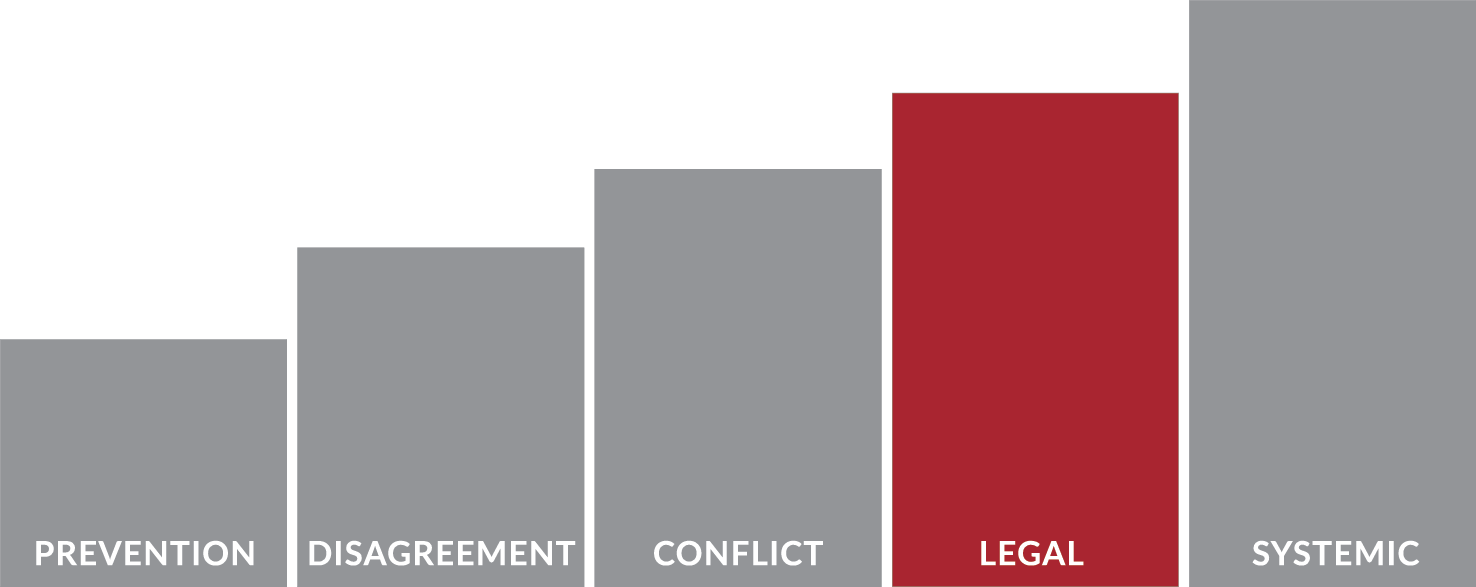
Legal
Parties seek legal protection or take legal action to deal with injustices caused by conflict. Some conflicts escalate to the point where specific interventions are required by law. Many interventions involve decision-making by a third party based on rights under law or policy.
Types of Interventions:
- Written state complaints
- Due process hearing
- Resolution session
- Formal investigations
- Mediation under IDEA
DC Resources:
- Advocates for Justice and Education
- American University Disability Rights Clinics
- Children’s Law Center
- Office of the Superintendent of Education, Office of Dispute Resolution
- University of the District of Columbia Juvenile Justice and Special Education Law Clinic
- University Legal Services
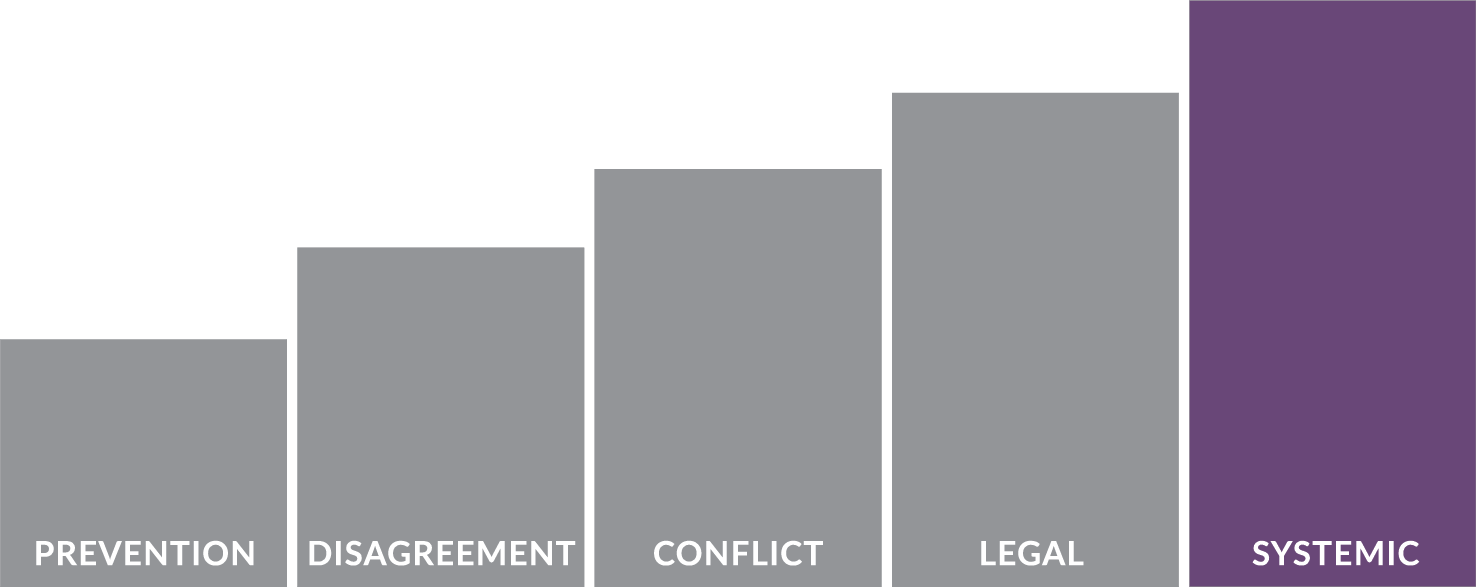
Systemic
A whole system or structure can violate individual rights or contribute to injustice at the social level. Individuals and organizations can advocate for change by identifying systemic issues and making recommendations to decision-makers to improve policies and processes at the highest levels of governance.
Types of Interventions:
- Special education legislation
- Special education policy-making
- Stakeholder decision-making
- Task forces
- Professional communities of practice
- Advocacy and voting
DC Resources:
- DC Council and individual Councilmembers
- Office of the Deputy Mayor for Education
- Office of the State Superintendent of Education
- Office of the Student Advocate
- Ombudsperson for Public Education
- Public Charter School Board
- SchoolTalk
- DC Secondary Transition Community of Practice

